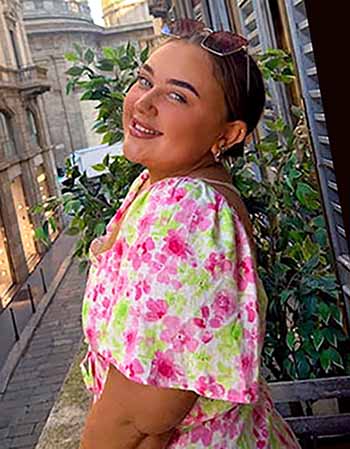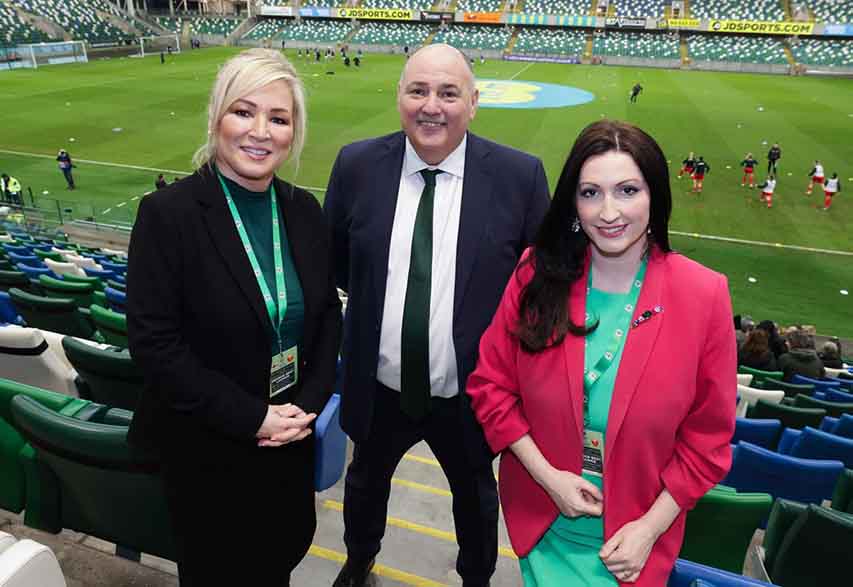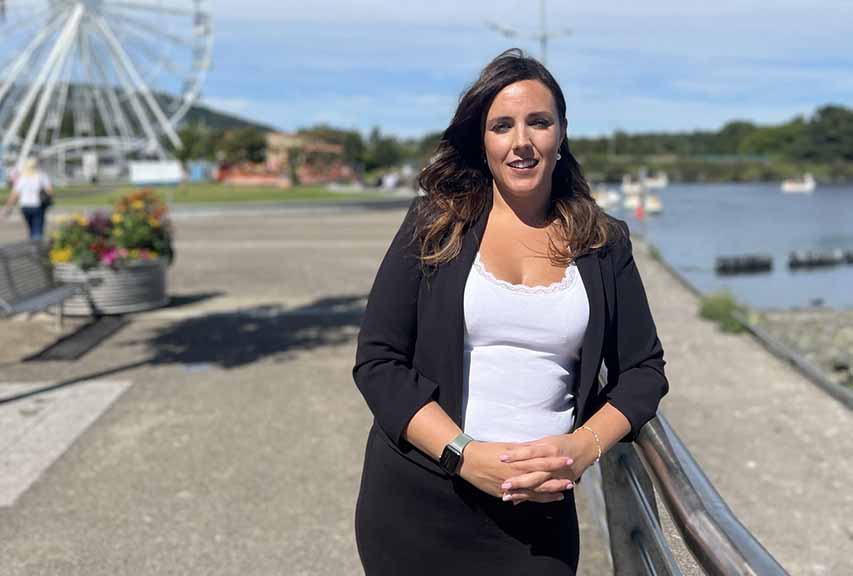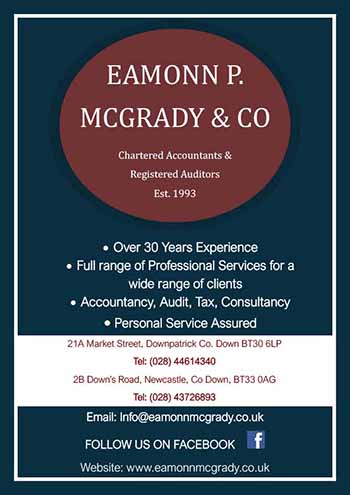A Feature By Ulster University Undergraduate Paige Toman Who Completed A One-Week Work Placement With Down News
**

In the dynamic landscape of Northern Ireland’s political arena, women have long been the driving force behind significant societal transformations, yet their representation in the front line in formal politics has often lagged behind writes Paige Toman.
Historically, the region has grappled with deep-rooted political divisions, which have influenced the participation of women in the role of governance.
In recent years, however, a notable shift has emerged, with women increasingly occupying pivotal roles in shaping the future of Northern Ireland.
Today, women in Northern Ireland are asserting their voices and claiming their rightful place in the political landscape, advocating for diverse perspectives and championing issues ranging from gender equality to socio-economic justice.
As the region continues to navigate complex political challenges, the presence and influence of women in politics stand as a beacon of progress and hope, driving towards a more inclusive and equitable future for all.
I asked a selection of our female MLAs from the three biggest parties and included the First Minister and Deputy First Minister in questions about their role at the coal face of politics.
***
Michelle O’Neill: First Minister (Sinn Féin).
Q1. As a woman, how would you say your experience has been and what do you bring to the table as part of the Northern Ireland Assembly?
“I bring my politics and values as a political activist, my belief in people and my determination to deliver a better society than the one I experienced growing up in.
“As a women I know the barriers that women have to overcome and the essential need for equality in our society.
“The most vital professions in our society are dominated by women – such as education, childcare services, nursing, caring, social services, and yet despite their importance, these are some of the lowest paid jobs.”
Q2. What barriers do you feel women face whilst attempting to enter politics ?
“Women face practical and cultural barriers and the effects of ingrained sexism and gender inequality in society.
“The lack of women on balance in the Assembly reflects the under-representation of women in sectors across society.
“Often this means women at the political level are absent from shaping crucial policies. This can have negative consequences where policies have gender specific impacts which can be overlooked.”
Q3. Do you think there should be more women in the Northern Ireland Assembly?
“Yes, we must make politics and public life more inclusive for women but also for minorities to reflect our increasingly diverse society.
“Equal representation is a priority for Sinn Féin. Our party leaders are women and we have been working to increase our female representation through gender quotas at candidate level.
“The benefit of this can be seen with our large proportion of women MLAs and TDs. In fact, over 50% of our
MLAs are women… 15 out of the 27 representatives.
“Each of us have shared experiences as women. But for each of us those struggles may be different. They can be based on age, race, class, sexual orientation, disability.
“But it is that diversity that can be transformative and together we can create the legacy of an equal world for ourselves and for future generations.”

***
Emma Little-Pengelly: Deputy First Minister (DUP).
Q1.As a woman, how would you say your experience has been and what do you bring to the table as part of the Northern Ireland Assembly?
“I am passionate about ensuring fair representation at every level in our politics, businesses, boards and civic society here. Women contribute huge experience, ideas, views, perspectives to all issues and full inclusion is to the benefit of everyone in society.”
Q2 What barriers do you feel women face whilst attempting to enter politics ?
“I think fewer women think of getting involved in politics and this is something we need to change.
“There are now more opportunities than ever for women, but it can be difficult to get women to stand or take up positions.
“Social media is also particularly toxic to those in public life, and this does seem to be more targeted towards women.”
Q3. How do you feel about our First Minister and Deputy First Minister both being women?
“I think a strong female leadership team can be a good inspiration for young women and for all of society in challenging stereotypes.
“However, we are both aware that this is not about symbolism on gender, but rather we will be judged on delivery. We want to be a jointly female-led executive that delivers.”
***
Cathy Mason: Sinn Féin (South Down).
Q1.How do you feel about our First Minister and Deputy First Minister both being women?
“It’s hugely significant that both our First and Deputy First Ministers are women. It’s reflection of the direction of where politics should be heading.
“But I’m more excited to see a woman as Taoiseach for the first time.”

Q2.What barriers do you feel women face whilst attempting to enter politics?
“I think Sinn Féin are working hard to break down the stigmas of women in politics. In meetings I am seen as equal to my male colleagues.
“I think there is more work to be done by other parties to increase women’s representation across the political spectrum.”
Q3. How is your work-life balance as a woman in politics?
“As a working mother I understand the struggles of childcare cost, juggling paternal responsibilities whilst doing my utmost to work hard for the people of South Down.
“There is a lot to be done to aid female MLAs, for example there are no provisions in place for maternity leave for MLAs or any additional help for women going through the menopause.
“There’s much more to be done to level the playing fields for women in the workplace.”
***
Paula Bradshaw: Alliance Party (South Belfast).
Q1: As a woman, how would you say your experience has been and what do you bring to the table as part of the Northern Ireland Assembly?
“In the Alliance Party, we simply believe in bringing candidates through on merit and we have arrived, without the need for quotas, at a situation where our elected representation is approaching 50/50.
“Certainly within the Alliance Party, gender is no issue, though it is perhaps worth noting that both our Party Leader and Chief Whip are women.”
Q2. What barriers do you feel women face whilst attempting to enter politics ?
“What I have found is that the biggest barriers, perhaps, are faced by women with younger children.
“Most obviously, there is no maternity leave; there is also a reality that in order to represent the community, you have to be out in that community in the evenings and at weekends.
“In practice, that makes it harder for mothers of younger children. I know this applies even just for candidates, as well as for Councillors and MLAs.”
Q3.How is your work-life balance as a woman in politics?
“To be frank, the work-life balance is a nightmare for any public representative.
“At any given time at all, there are events I could be at, people I could be meeting, or issues I could be responding to.
“As I have noted above, I think this is particularly difficult for mothers of young children and we need to find ways to promote shared parenting but also, perhaps, to make the whole process of elected representation fairer towards them.
“Investing in public childcare would, perhaps, be a good start, but it is surely not the only step necessary.”

Kellie Armstrong: Alliance Party (Strangford).
Q1.As a woman, how would you say your experience has been and what do you bring to the table as part of the Northern Ireland Assembly?
“My experience as a woman in politics has been largely positive. In the Assembly chamber and in committees I am known for my attention to detail, ability to legislate and commitment to deliver.
“The only downside has been vindictive trolling on social media. But this is not unique to women in politics as all politicians are subjected to attacks normally from anonymous keyboard warriors.
“There have been a couple of occasions where the trolling has become more sinister and I have had to involve the police.”
Q2.What barriers do you feel women face whilst attempting to enter politics ?
“I worked on a project to look at barriers to women in politics as part of the then Speaker Mitchell McLaughlin’s review that included women from all political parties.
“Through that work we identified that many women face the same barriers that they face for employment, that is lack of appropriate and affordable childcare, working conditions that are not family friendly and lack of opportunity.
“Thankfully the outcome of that work has helped to change some of the practices at the NI Assembly to bring in more family friendly working hours.
“The opportunity to enter politics is however in the hands of political parties.
“Alliance is a Party that welcomes and encourages talent.
“We have never had to introduce quotas to ensure we have a gender balance. Some other political parties have introduced gender quotas to ensure enough women are put forward for selection and election.”
Q3. Do you think there should be more women in the Northern Ireland Assembly?
“I believe the more women who stand for selection by their political parties, will result in more women being elected to the NI Assembly.
“I would welcome more women in the Assembly. Women make up just over 50% of the NI population yet of 90 MLAs only 32 are women (35.5%).”
***























